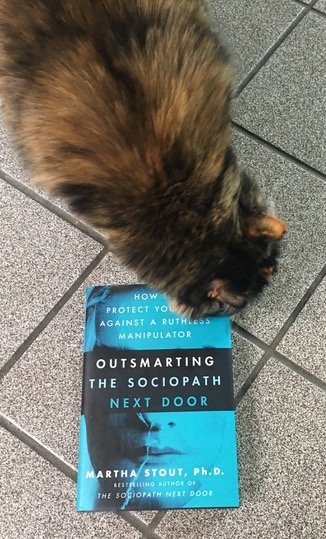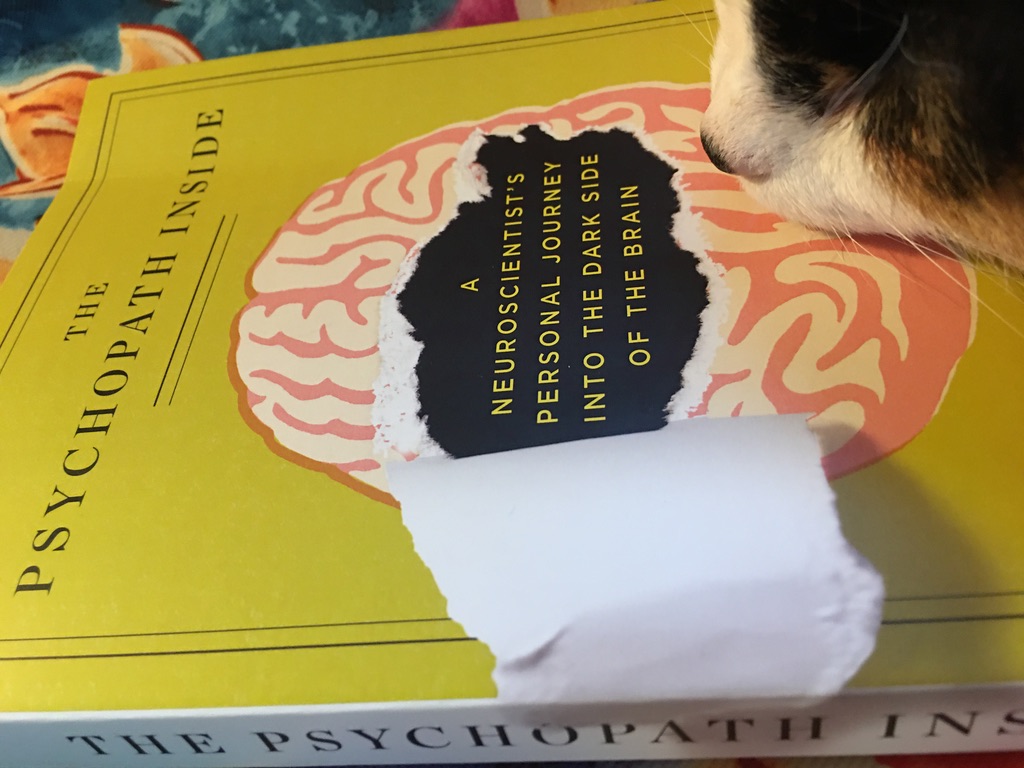Today I’m talking about another book: Outsmarting the Sociopath Next Door, by Martha Stout, PhD. Dr. Stout is a clinical psychologist who was on the faculty of Harvard Medical School, and specializes in recovery from psychological trauma and PTSD. I read one of her earlier books, The Sociopath Next Door, a number of years ago, and after reading James Fallon’s book decided it was time for an update.
 In this book, Dr. Stout focuses on the very practical concerns of managing the effects on your well-being of those in your life, from whom you cannot just walk away, who lack a conscience and cannot form emotional bonds with others. Whose mode of operation is treating life as a zero-sum game, where there are winners and losers and they are determined to be winners and rub in that you are the loser. The three groups she looks at are 1. your own children, 2. people you have to work with, and 3. exes involved in child custody battles. She offers very specific recommendations about how to structure your interactions with these individuals, once you recognize them for what they are.
In this book, Dr. Stout focuses on the very practical concerns of managing the effects on your well-being of those in your life, from whom you cannot just walk away, who lack a conscience and cannot form emotional bonds with others. Whose mode of operation is treating life as a zero-sum game, where there are winners and losers and they are determined to be winners and rub in that you are the loser. The three groups she looks at are 1. your own children, 2. people you have to work with, and 3. exes involved in child custody battles. She offers very specific recommendations about how to structure your interactions with these individuals, once you recognize them for what they are.
A big barrier is likely just recognizing someone as a sociopath, with its implications for how to work with them. They won’t “get better” if only you were a better parent, better spouse, better employee. That their behavior is not your fault, no matter how much blame they try to hand off to you. That you have to pay attention to your own emotional welfare.
One phrase in this book that caught my attention is “closed system.” In our self-defense classes I refer to this as “social isolation.” You and the sociopath are in a relationship that may be covert, and you may be embarrassed or afraid or insecure and not talk about it. Or the relationship may be well-known, but what goes on behind closed doors is kept mum. Dr. Stout points out (as do we in our classes), that violence thrives in silence, and she suggests that you find a person you trust, and who would be supportive, someone to confide in, who is also outside the social group you share with the sociopath. So if the sociopath is a co-worker, talk with someone not at your workplace.
Dr. Stout believes that with diligence, persistence, and planning, you can be outsmarting the sociopath next door. Sociopaths, according to her, have a limited range of motivation and pretty much stick to their script. Can you work around that, as they are trying to push your buttons for the reaction they want?
Dr. Stout also strongly suggests that when dealing with agencies such as law enforcement and the courts, you refrain from using the word sociopath (or psychopath, or any other clinical diagnostic labels) to describe that person. That will not get you the support you’re seeking, and in fact may get YOU labeled as the trouble-maker. How’s that? Read the book.
And that’s all for today. Be sure to check out the summer schedule for LIVE IN-PERSON classes.
Stay safe, live life.

 .
.